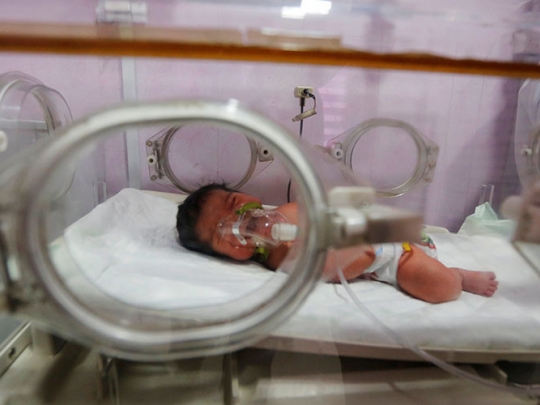Caesareans altering human evolution, study finds

Caesarean sections are affecting evolution, according to new research which claims the surgery is allowing for an increase in women born with a narrow pelvis.
The number of cases in which a baby is unable to fit down the mother’s birth canal has increased 20 percent worldwide from 30 in 1,000 to 36 in 1,000 since the procedure became commonplace in the ’50s, according to research from the University of Vienna.
"Women with a very narrow pelvis would not have survived birth 100 years ago. They do now and pass on their genes encoding for a narrow pelvis to their daughters," Dr Philipp Mitteroecker from the university told the BBC.
One in three babies born in the US are through caesarean section according to the World Health Organization (WHO), with the UK slightly lower at one in four.
Factors driving the demand for the procedure include women giving birth later in life when their body tissue is less amenable to stretching, as well as a higher rate of conditions such as diabetes, which can complicate the birthing process.
Mitteroecker claims the previous trend towards smaller babies up until the 1950s has been eliminated by the increase, with larger more healthy babies increasingly common due to the use of C-section.
Compared to other animals, the heads of human babies are quite large, making the birthing process more difficult for humans than primates. Evolution has struggled to find a balance between a larger pelvis allowing for easier births and the necessity of a narrow pelvis, allowing us to walk upright.
"I expect that this evolutionary trend will continue but perhaps only slightly and slowly,” said Mitteroecker, adding that he believes non-surgical births – those via the birth canal – will continue to outnumber C-sections.
In the US women can choose to have a C-section even when not medically required and, with more than one and a quarter million carried out each year, it’s the most common procedure in the country's hospitals.
“Women can choose the day, they can choose the surgeon, they know exactly how it will happen,” neonatologist Dr Terrie Inder told health and medicine publication Stat News.
- Source : RT















